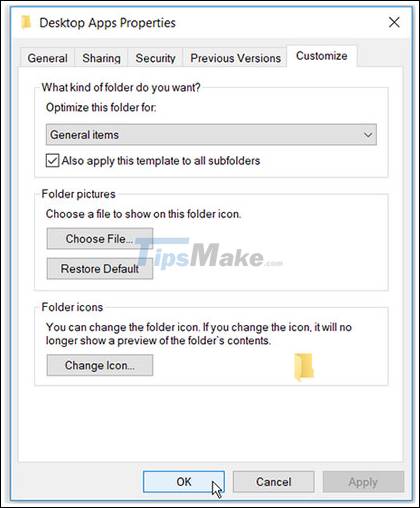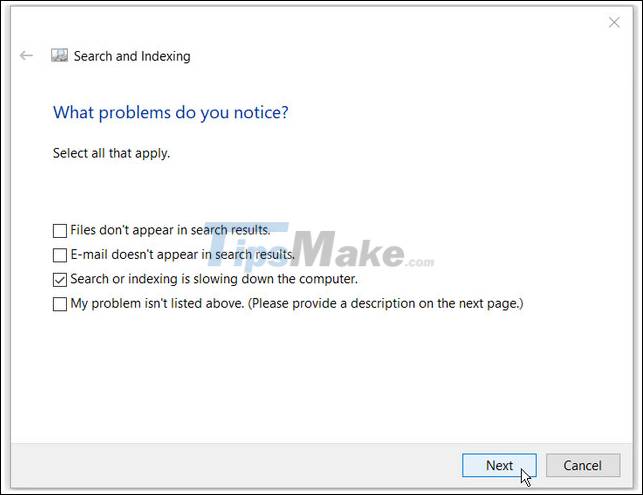Steps to fix slow Windows File Explorer
Windows File Explorer is a great tool, but it also has its limitations. The program often responds slowly when you open or copy files. Sometimes, File Explorer's search bar takes too long to load search results or doesn't provide search results at all.
1. Restart File Explorer
Restarting File Explorer can help with this problem - especially when you have multiple File Explorer windows open.
Step 1: To get started, right-click on the taskbar and select Task Manager from the options.
Step 2: Right-click on Windows Explorer and select Restart.

If the problem persists, try closing File Explorer with Task Manager and then reopening it manually.
To do this, open the Task Manager following the previous steps. From there, right-click on Windows Explorer and select End task . Finally, open File Explorer and check if the problem is resolved.
2. Minimize running programs
Running too many PC programs at once can affect the speed of File Explorer. In fact, this can slow down your entire PC.
To work around this, try minimizing the number of programs running on your PC.
Step 1: To get started, open Task Manager by pressing Ctrl + Shift + Esc .
Step 2: Navigate to the Processes tab .
Step 3: In the Apps section , right-click on a specific program and select End task . Repeat this for all the programs you want to close.

Next, scroll down to the Background processes section and close some tasks using the previous steps.
3. Turn off Quick Access and clear File Explorer history
Quick Access is one of the best features of File Explorer. When you open File Explorer, your recently accessed files and folders appear in Quick Access preferences. This helps you access your files and folders quickly, but it can also slow down File Explorer.
To speed up File Explorer, you might consider disabling Quick Access.
Step 1: Open File Explorer and click on the File option in the upper left corner of the screen.
Step 2: Select Change folder and search options .
Step 3: In the next window, navigate to the General tab .
Step 4: Click the Open File Explorer drop-down menu to select This PC .
Step 5: Next, uncheck the Show recently used files in Quick access and Show frequently used folders in Quick access options .
Step 6: Now, press the Clear button next to Clear File Explorer History .
Step 7: Click Apply > OK to apply these changes.

Restart the PC to apply these changes.
4. Configure Folder Optimization Settings
Are you having this problem with just one folder with many files and subfolders inside it? If that's the case, optimizing that directory can be helpful.
Here's how you can optimize your folders to help speed up File Explorer:
Step 1: Right-click on the problematic folder and select Properties.
Step 2: Navigate to the Customize tab .
Step 3: Click the Optimize this folder for drop-down menu and select General items.
Step 4: Check the box Also apply this template to all subfolders .
Step 5: Click Apply > OK to apply these changes.

5. Troubleshooting with Windows search and indexing service
Windows search and indexing service is a great tool. It helps improve your PC's search performance. However, File Explorer and its search bar can be slow if service search and indexing is problematic.
Troubleshooting Windows search and indexing service that can help speed up File Explorer.
Here's how you can fix the problem:
Step 1: Type Control Panel into the Windows search bar and select the best match.
Step 2: In the View by drop-down menu , select Small icons .
Step 3: From there, select Indexing Options.
Step 4: In the next window, select Troubleshoot search and indexing .
Step 5: Check the box Search or indexing is slowing down the computer .
Step 6: Click Next to complete the process.

Good luck with your troubleshooting!
You should read it
- ★ 5 best Windows File Explorer extensions to manage files on the system
- ★ 7 notable changes in File Explorer Windows 11
- ★ 9 outstanding features of Solid Explorer you may not know
- ★ Finally, Microsoft also adds a tabbed interface to File Explorer on Windows 11
- ★ How to hide / show the status bar in File Explorer on Windows 10